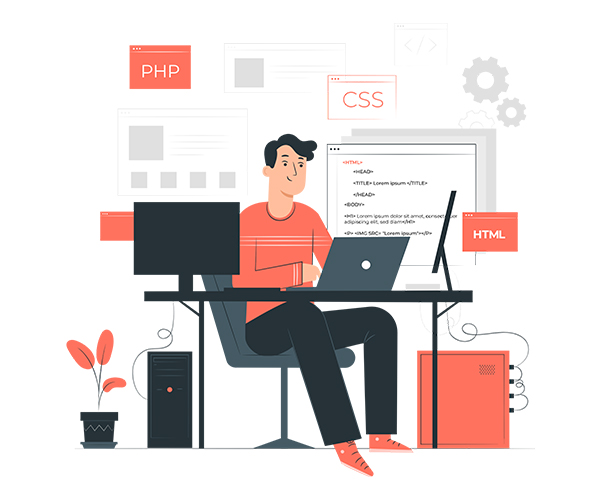
How Atidan Helped Science Publications Aggregate Resources and Create amazing Custom Applications
February 8, 2022
How To Build Web Applications That Stand Out
February 9, 2022
Unlocking the Potential of Natural Language Processing in Healthcare

The use of Artificial intelligence in the healthcare space is on the up and up. Some of the most compelling AI applications leverage natural language processing(NLP). The world has already seen advances in the education space, from grammar suggestions to creating powerful learning experiences. NLP has this unique ability to understand unstructured data which makes it a great choice for applications in the healthcare space. The global market for NLP in healthcare and Life Sciences is growing at a CAGR of 19% and is expected to reach $4.3 billion by 2026. As data literacy improves amongst patients and corporations alike, generating valuable insights from EHR and other health records data might end up being the driving factor for growth in this space. Given that data-driven technologies are more accessible than ever, it is expected to improve healthcare outcomes while driving growth in business opportunities. NLP could potentially be the key to effective patient care but there are many problems to solve before an industry-wide adoption. Here’s the perfect guide to understanding the potential impact on NLP on the healthcare industry.
What is NLP?

Natural language processing(NLP) is the branch of AI that involves getting machines to understand the natural language. It is often said to be an intersection of computer science, linguistics and machine learning. The world generates a staggering 2.5 quintillion bytes of data every single day with upto eighty to ninety percent of the data in question being unstructured. NLP has the ability to convert all of that unstructured data into structured data which provides us the opportunity to gain insights from it. NLP has a wide array of applications ranging from voice assistants like Alexa and Siri, sentiment analysis tools like Text Analytics to text generation tools like GPT-3. NLP applications can be broadly classified into three categories:
- Speech Recognition: The ability to decipher spoken language and translating it to text consequently.
- Natural Language Understanding: The ability to understand and process what a human says.
- Natural Language Generation: The ability to generate text in natural language that is indistinguishable from text generated by a human to a certain extent.
The Benefits of Natural Language Processing in Healthcare

NLP has the potential of revolutionizing the entire healthcare system. From better patient care to assistance in decision-making for doctors to advancements in medical research, NLP has a host of fairly obvious benefits. Some of them are:
- Improvement in EHR data utilization: NLP has the ability to process unstructured data from various sources that can then be converted into structured data. AI systems can then analyze that data and provide useful insights. Given that the use of analytics-based tools in healthcare has been fairly limited till now, the changes could potentially improve healthcare outcomes by an order of magnitude.
- Medical Research: NLP-based tools are already in performing analysis of clinical trials. The insights gained using such tools can further research endeavours and assist new techniques like genetic therapy.
- Enables the use of Predictive Analytics: It can result in the identification of high-risk patients and significant improvements in the ability to provide emergency care in the ER.
- Systemic improvement in quality of care: NLP can improve the quality of healthcare offered and thereby, cause a systemic change in healthcare outcomes.
Practical Applications of Natural Language Processing in Healthcare

Natural Language Processing has seen a recent increase in applications in the healthcare sector. One of the most important of these is in medical imaging. Although MRI scans are fast and more accurate than traditional x-rays, they come with a host of caveats that can be difficult for patients to understand, such as their likelihood of developing cancer, the probability of the cancer returning, or the chance that they might have an infection. Natural Language Processing is being used to interpret MRI scan reports. Here are some of the most common practical applications of NLP in healthcare:
- Dictations and EMR: Clinical note records are significantly more detailed than EMR data. To tap into this unutilized data, a fair number of physicians are shifting from handwritten notes to voice notes that can easily be analyzed by NLP-based tools and added to EMR data. With the detailed analysis from clinical notes, NLP systems can ensure that critical information from the note is updated in the patient’s health records.
- Root Cause Analysis: It involves vast and diverse health records playing a role in providing a solution to prevalent health problems. It can take geographic, racial, and social factors into account while coming to a conclusion. Similarly, NLP systems can be used to access unstructured data and form a reasonable explanation to the root cause of the symptoms observed.
- Clinical Trial Matching: This technique is already being used in practice to automate trial matching to remove the friction from the tedious process. Tools like IBM Watson health are often used to support trials.
- Clinical Documentation: NLP assistance in clinical documentation provides doctors with additional time to invest in incrementally better patient care. NLP-based technologies like speech-to-text engines and formulated data entry have been in use for quite some time now.
How Atidan Technologies can help you integrate NLP-based solutions into your business

Atidan specializes in creating customized strategies for AI adoption. Atidan has a ton of experience in going hand-in-hand with organizations to create customized products that implement NLP. With access to the largest talent pool in the world with a proven track record of customer satisfaction, Atidan can help you develop a rock-solid approach to ensure seamless integration. With access to Atidan’s highly experienced recruiters, you can even hire deep learning(NLP) engineers for your business. With decades of experience in helping businesses with their technological needs, Atidan delivers more value than you could imagine. With global offices in the USA, UK, India, SEA and success stories across various industries, our goal is to help you realize the full potential of today's cutting-edge technologies.

